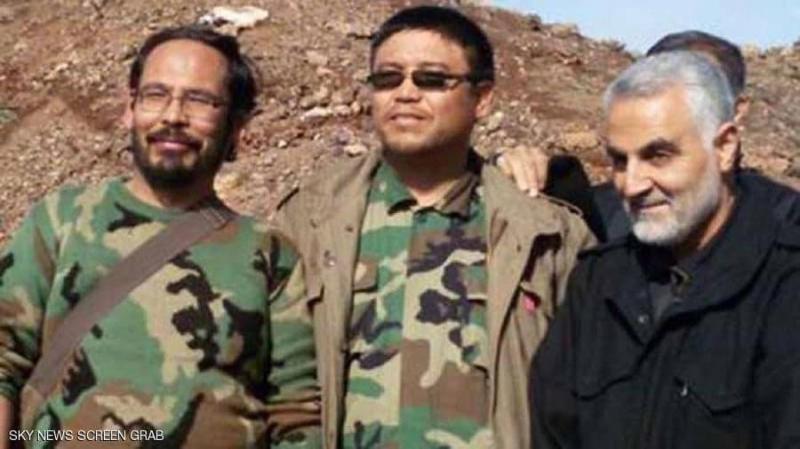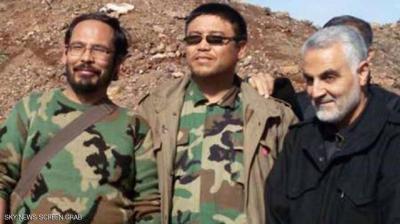Iran finds itself in a position that compels it to change its policy towards the Taliban, which took control of Afghanistan last month, especially with the rapid events and strategic upheavals that were unforeseen, according to observers. The Taliban recently announced that it had concluded the battle in the Panjshir Valley, the last area held by the opposition in Afghanistan, and Iran had hoped to use this valley to delve into the intricacies of Afghan conflicts. The battle for control of the valley revealed collaboration between Pakistan and the Taliban, contrary to previous bilateral political consultations between the two countries, where they had previously agreed to coordinate with each other, which did not occur.
Unprecedented Criticism
This situation led the Iranian foreign ministry to issue direct criticisms of Islamabad's position. The third event was the Taliban's announcement of the new Afghan government formation, which did not include any person associated with Iran, particularly from the Hazara minority. In light of these significant developments in Afghanistan, Iran is now compelled to adopt a new policy, as observers point out, including the "Fatemiyoun" Afghan group loyal to Iran and the strategic alliance with Russia as primary available tools. According to John Alterman, a researcher at the Center for Strategic and International Studies, "the Fatemiyoun Brigade (Afghan/Shiite), which was one of the results of the previous influx of Afghan immigrants to Iran in the 1980s and 1990s, was established by Iran to fight in other parts of the Middle East on behalf of the Iranians." He continued, "There is a possibility that Iran may attempt to return some of these Afghan fighters, who are under Iranian command, to Afghanistan, where there is a battle for control of the Afghan state."
During the Afghan civil war in the 1990s, Iran supported the Northern Alliance, one of whose main components was the Hazara ethnic group, which formed the "Fatemiyoun Brigade." However, after 2001, following the American occupation of Afghanistan, Iran resumed its tacit containment and engagement with the Taliban to create political and security pressure on the American presence there.
Militias as a New Weapon
Colin Clarke, a researcher at the Soufan Center, adds in a comment on this trajectory, "Some Iranian government officials have publicly considered what they will do with the Fatemiyoun Brigade battalions. This network of foreign fighters, once the conflict in Syria ends, will not return home to become bakers, mechanics, and teachers." He continued, "These factions are now a new tool used by Iran in the region. They are just another option for Iran to manage its foreign and security policy in cases where it truly feels threatened by developments in Afghanistan."
Politically, Iran sees itself divided between two types of powers seeking to engage with the Taliban. On one hand, Pakistan aims for military and security engagement with the group to establish a type of traditional influence similar to what Pakistan had in the 1990s. On the other hand, there is China, which is in dialogue with the Taliban, viewing the U.S. withdrawal from Afghanistan as an opening for its overland trade corridor to the Middle East and the Mediterranean.
Iran did not expect the rapid takeover of Afghanistan by the Taliban, as it sought, on one hand, to maintain a fragile Afghan government and tried to establish regional cooperation to contain the Taliban, particularly with Pakistan, but neither endeavor succeeded.
Iranian Concerns
Researcher and writer Nazdar Shukri explained in an interview with Sky News Arabia the Iranian hesitation between the levels of influence in Afghanistan. She stated, "While Iran sees the Taliban as an inevitable reality, it fears the future development of the group and its relationship with the rebellious Baloch groups in eastern Iran, hence it wants to compete with Pakistan for military influence. Although Iran has a strategic economic relationship with China, it does not trust China's ability to manage and politically tame the Taliban through financial interests, fearing that this may serve the group."
Shukri adds, "In conclusion, Iran has severe concerns regarding Afghanistan and does not see any of the geopolitical spectrum surrounding Afghanistan except Russia as a close partner, since Russia shares Iran's security concerns about what may flow from Afghanistan in the distant future. Like Iran, it is skilled at playing on Afghan ethnic sensitivities and can enter through them into the fabric of the Afghan internal equation."




